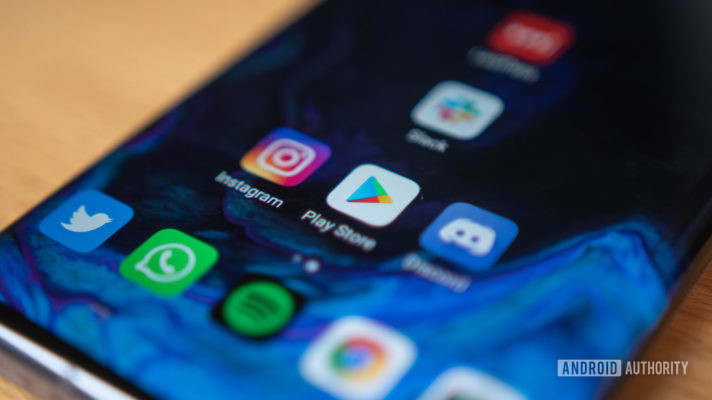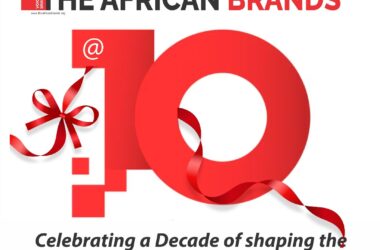The insinuation in some quarters that the activities of Over the Top content providers (OTT) appear to be a threat to handler of brands in Nigerian telecommunication industry is fast becoming a reality. For some years now, Google and Facebook have been working to provide free global internet. However, this push to help internet users, especially in Africa to access reliable and fast internet has become a topic of interest recently due to the disruption it will cause to existing internet structure in the African continent.
In 2018, when the founder of facebook, Mark Zuckerberg visited Nigeria, he stated, that, in no time, there will be no need to pay for voice calls again. And one of the ways to this achieve this feat according to him, is one his plans to launch a low Earth orbit, non-geostationary orbit satellite to power internet services on places around the world with no or low internet networks. That’s after the 2016 SpaceX’s explosion destroys Facebook’s AMOS-6, a product of Facebook’s internet.org designed to provide internet for the unserved and underserved, particularly in sub-Saharan Africa.
Google on the other hand, had some time in last year, announced a plan to build a new private subsea cable that would connect Africa with Europe. The subsea cable nicknamed (Equiano), after Nigerian-born 18th century writer and abolitionist, Olaudah Equiano, is designed to run between Portugal and South Africa and make its landing in Nigeria in 2021.
As the realization of the global satellite internet is still far from reality, Google and Facebook are banking on the more practical way – the undersea cable. While the idea appears sublime to all internet users in Africa, it poses a threat to telecom companies and internet providers.
Telecom operators are worried that the move will push them out of business since internet data services is an integral part of telecom operation. And they rely heavily on internet users to augment revenue from call services.
As a matter of fact, analysts are of the view that, if this happen, brands in Nigerian Telecom industry will be losing an estimated amount of about ten billion naira monthly. For these analysts, owners of the said brands have to think fast on how to improve on their data business by way of providing quality service or else, they will close shops. That not withstanding, they will still have issues of trust to deal with if other internet service providers brace up with the trend.
Speaking on this development, the Chairman, Association of Licensed Telecommunications Operators of Nigeria, Gbenga Adebayo said that organizations like Facebook generate revenue from ads, making it easy for them to offer free internet to users. Moreover, they have no tax obligation in countries where they are operating, unlike telecom companies.
“Virtual operators like Facebook are organizations that mainstream operators have to watch out for because a number of services they render today are free of charge. Their revenue is mostly from advertisement. They don’t have tax obligations; they don’t have any obligation like the conventional licensee have to the government.
“If they should come with this service that is free end-to-end, it will be a significant threat to the survival of the mainstream operators.
“Right now, we have enough broadband capacity on the seashores but we have not been able to transfer such capacity to the hinterland. Unless that problem is solved, we will not feel the positive impact of such additional traffic pipes coming in,” he said.
The inability of the operators to transfer the capacity of the undersea cables into the hinterland has been the major reason for poor internet connectivity in Nigeria.
Nigeria has notably, about five undersea cables landing, delivering nine terabytes per second of broadband capacity sufficient to provide speedy internet in the country. Ntel’s South Atlantic 3 fiber optic, is worth over $600 million; Dolphin Telecoms’ Ace cable is worth about $700 million; MTN’s West African Cable System stood at $650 million; Globacom’s Glo 1 cable is about $800 million, and MainOne costs about $300 million.
Though there is a new 2020 -2025 Broadband Plan designed to deliver data download speeds across Nigeria of a minimum 25Mbps in urban areas, and 10Mbps in rural areas, with effective coverage available to at least 90% of the population by 2025, at a price not more than N390 ($1.10) per 1GB of data, there are still other challenges.
One of them is the “right of way” that operators have been lamenting about its cost. State governments have been charging N4.5 million ($11,600) for the laying of a kilometer of broadband cable, and that has contributed to the inefficient yet expensive internet service in Nigeria.
So far, a few states in Nigeria have shown interest in cutting the cost for laying broadband cables, which signals that the 2020 -2025 Broadband Plan may not be attainable. Ekiti State in South-west Nigeria has reduced the right of way charges by 96%, and Imo State in the Southeast crashed the price to N145 per meter. Others are still dragging feet, compounding the woes of the telcos.
This situation has opened an opportunity for Google and Facebook to implement their plan with ease, as other African countries are facing similar challenges.
Consequently, operators in Nigeria are worried that state governments’ failure to address the cost of right of way in tandem with the federal government’s new broadband plan will usher in a new era of free internet, masterminded by Google and Facebook and it will disrupt the broadband market.
Despite the huge investments these Nigerian telcos have in undersea cables, internet services are still very poor in Nigeria and Africa as a whole. Africa has download speed of 1.56 megabytes per second (Mbps), which keeps its internet market at the bottom quarter of UK’s analytics firm, Cable’s global broadband speed ranking for 2019. Madagascar is the only African country that boasts of 10 Mbps as of last year.
But the president, Association of Telecommunication Companies of Nigeria, Olusola Teniola said that Google and Facebook’s plan will result in affordable internet in Nigeria, as it will provide additional broadband capacity. But he added that the regulator, the Nigerian Communication Commission (NCC), should ensure a level playing ground for all operators.
“What it will do in conjunction with the five active undersea cables is to provide some level of resilience and redundancy to the undersea cables. It is important to also note that it should improve affordability to communities that have not got connectivity or affordable data.
In all of this, the sincerity of brand in relation to its ability to deliver on promise is expressly tangible, what happens is that such offerings are often times economic with truth! For instance, how would one judge a Telecom brand that promise connecting people at an affordable price and ended up encroaching into consumers’ privacy with unsolicited text messages at an additional coast?
Analysts are therefore of the view that the responsibility for brands’ sincererity rest with the brand owner. There was an airline brand in Nigeria at a time that promise direct flight between Lagos and Newyork (nothing in between). It was a clear quantifiable value offer within the consideration of emotion. Though such brand offer was based on emotion, it was clearly positioned/sold on the basis of direct flight no stop over.
That is what Nigerian consumers crave for when it comes to Telco brands in Nigerian market. Predominantly, the decision to buy among target consumers in Nigeria Telco market is based on emotional consideration. Therefore, most of the brand handlers make all sort of claim, they succeed in market objectives, because the target consumer is in addition not discerning.
Broadly speaking, Nigeria Telco industry is categorised into voice and data. While the voice is presumably targeted at both high and low income earners, the data segment is for the private and public organisation. The general assumption is that both categories are same in purpose and consumer expectation.
To all intent and purpose, there is no inherent danger in using either of the category, but the problem however, is that advertising for all these categories are not sincere about their constituents and categorisation. A lot of consumers are deliberately made to most of the time subscribe to what they intent not to subscribe to via subtle marketing. This situation has made most patrons of brands in Nigeria Telco sector to consider other alternative if any.









